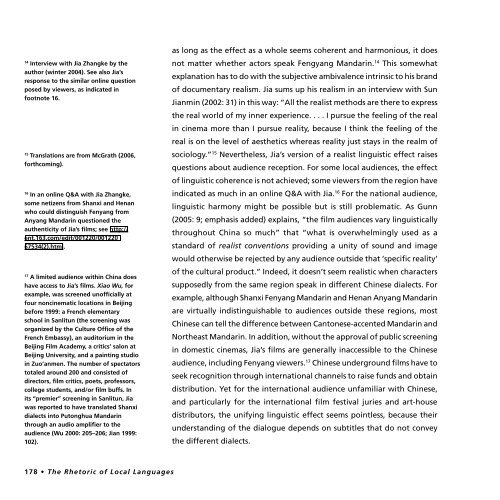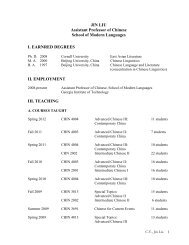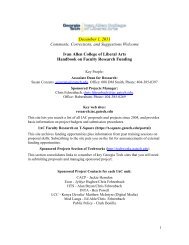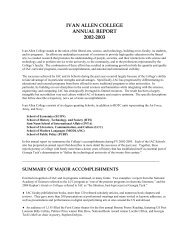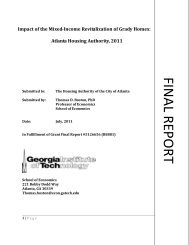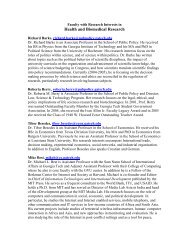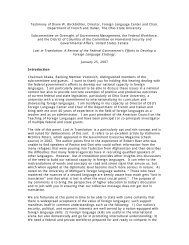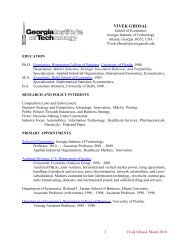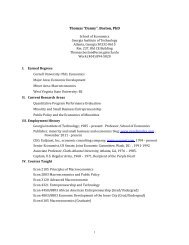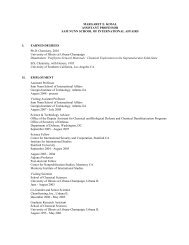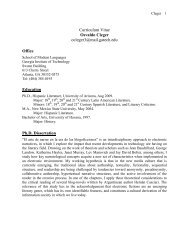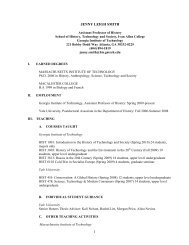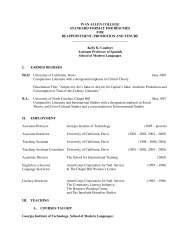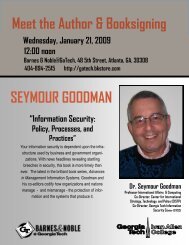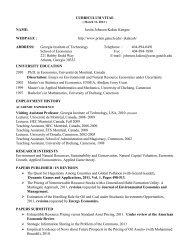Read this paper
Read this paper
Read this paper
Create successful ePaper yourself
Turn your PDF publications into a flip-book with our unique Google optimized e-Paper software.
as long as the effect as a whole seems coherent and harmonious, it does<br />
14<br />
Interview with Jia Zhangke by the<br />
author (winter 2004). See also Jia’s<br />
response to the similar online question<br />
posed by viewers, as indicated in<br />
footnote 16.<br />
15<br />
Translations are from McGrath (2006,<br />
forthcoming).<br />
16<br />
In an online Q&A with Jia Zhangke,<br />
some netizens from Shanxi and Henan<br />
who could distinguish Fenyang from<br />
Anyang Mandarin questioned the<br />
authenticity of Jia’s films; see http://<br />
ent.163.com/edit/001220/001220_<br />
67534(2).html.<br />
17<br />
A limited audience within China does<br />
have access to Jia’s films. Xiao Wu, for<br />
example, was screened unofficially at<br />
four noncinematic locations in Beijing<br />
before 1999: a French elementary<br />
school in Sanlitun (the screening was<br />
organized by the Culture Office of the<br />
French Embassy), an auditorium in the<br />
Beijing Film Academy, a critics’ salon at<br />
Beijing University, and a painting studio<br />
in Zuo’anmen. The number of spectators<br />
totaled around 200 and consisted of<br />
directors, film critics, poets, professors,<br />
college students, and/or film buffs. In<br />
its “premier” screening in Sanlitun, Jia<br />
was reported to have translated Shanxi<br />
dialects into Putonghua Mandarin<br />
through an audio amplifier to the<br />
audience (Wu 2000: 205–206; Jian 1999:<br />
102).<br />
not matter whether actors speak Fengyang Mandarin. 14 This somewhat<br />
explanation has to do with the subjective ambivalence intrinsic to his brand<br />
of documentary realism. Jia sums up his realism in an interview with Sun<br />
Jianmin (2002: 31) in <strong>this</strong> way: “All the realist methods are there to express<br />
the real world of my inner experience. . . . I pursue the feeling of the real<br />
in cinema more than I pursue reality, because I think the feeling of the<br />
real is on the level of aesthetics whereas reality just stays in the realm of<br />
sociology.” 15 Nevertheless, Jia’s version of a realist linguistic effect raises<br />
questions about audience reception. For some local audiences, the effect<br />
of linguistic coherence is not achieved; some viewers from the region have<br />
indicated as much in an online Q&A with Jia. 16 For the national audience,<br />
linguistic harmony might be possible but is still problematic. As Gunn<br />
(2005: 9; emphasis added) explains, “the film audiences vary linguistically<br />
throughout China so much” that “what is overwhelmingly used as a<br />
standard of realist conventions providing a unity of sound and image<br />
would otherwise be rejected by any audience outside that ‘specific reality’<br />
of the cultural product.” Indeed, it doesn’t seem realistic when characters<br />
supposedly from the same region speak in different Chinese dialects. For<br />
example, although Shanxi Fenyang Mandarin and Henan Anyang Mandarin<br />
are virtually indistinguishable to audiences outside these regions, most<br />
Chinese can tell the difference between Cantonese-accented Mandarin and<br />
Northeast Mandarin. In addition, without the approval of public screening<br />
in domestic cinemas, Jia’s films are generally inaccessible to the Chinese<br />
audience, including Fenyang viewers. 17 Chinese underground films have to<br />
seek recognition through international channels to raise funds and obtain<br />
distribution. Yet for the international audience unfamiliar with Chinese,<br />
and particularly for the international film festival juries and art-house<br />
distributors, the unifying linguistic effect seems pointless, because their<br />
understanding of the dialogue depends on subtitles that do not convey<br />
the different dialects.<br />
178 • The Rhetoric of Local Languages<br />
MCLC 18.2.indd 178<br />
12/20/06 2:01:37 PM


